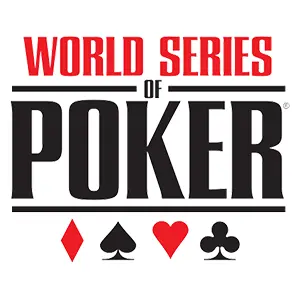The Empire Strikes Back
The impact of the UIGEA on the 2007 WSOP

The 2007 World Series of Poker was the first to be held after the enactment of the Unlawful Internet Gambling Enforcement Act (UIGEA) by the U.S. Congress. Prior efforts to declare online gambling illegal under the Wire Act had failed, as courts ruled the law did not apply to online gambling. The UIGEA was then strategically included in the SAFE Port Act, a bill addressing national security at American ports, which was easily passed by Congress due to the high priority of security.
The UIGEA declared financial transactions related to online gambling illegal if the gambling was unlawful under any state or federal law. However, at the time, no laws in the U.S. explicitly made online gambling illegal, and only a few states have since enacted such legislation. Despite the lack of explicit federal prohibition, the UIGEA caused many online poker sites, most notably Party Poker, to withdraw from the U.S. market. This led to a mass migration of American players to sites like PokerStars and Full Tilt Poker, making them the top poker sites globally. Nonetheless, confusion from the UIGEA made many Americans mistakenly believe online poker was illegal, impacting the size of the online poker market in the U.S. and worldwide.
The decline in participants
The WSOP, although a live event held in Las Vegas where gambling is legal, had seen phenomenal growth spurred by online qualifiers, many from the U.S. The UIGEA led to a decrease in the number of participants. In 2007, the main event saw 2,415 fewer participants than the previous year. This decline was not due to a decrease in poker’s popularity, which actually grew, but rather due to the reduced number of online qualifiers.
Despite this, the 2007 main event still attracted 6,358 entrants, the second highest in the WSOP’s history. The first-place prize of $8.25 million was also the second highest ever. Harrah’s Entertainment, the WSOP owner, implemented a policy to no longer directly sell WSOP seats to online poker sites accepting Americans. However, the poker sites circumvented this by giving cash to players to buy seats themselves. The reduced demand was due to the drop in online players participating.
Expanding the WSOP
The number of preliminary tournaments continued to grow, reaching 54 events in 2007. This included the prestigious H.O.R.S.E. championship, with a $50,000 buy-in, requiring mastery of five poker variations: Texas Hold’em, Omaha Hi-Lo, Razz, 7 Card Stud, and 7 Card Stud Hi-Lo. Freddy Deeb won the H.O.R.S.E. championship, taking home over $2.25 million. Many consider this tournament more prestigious than the main event, and it was later renamed the Player’s Championship.
The main event and the final table

The main event participants were divided into four groups, each with separate starting days. Despite a smaller prize pool for the main event, the total prize pool for all events surpassed the previous year’s record, exceeding $150 million. The payout structure also changed, allocating a higher percentage of the prize pool to lower finishers.
The last recognizable player in the main event was Scotty Nguyen, the 1998 World Champion, who finished 11th. The final table comprised unknowns, with Jerry Yang emerging as the standout. Yang, who won a satellite tournament at a local poker site in Temecula, California, turned his $225 investment into the $10,000 entry fee for the main event.
Jerry Yang’s journey
Starting the final table eighth in chips, Yang adopted an aggressive strategy, playing to win rather than conservatively waiting for others to bust out. He carefully studied his opponents and chose his spots wisely, dominating the action at the final table. Yang personally eliminated seven of his eight final table opponents.
The final hand came down to Yang’s pocket eights against Tuan Lam’s ace-queen. A queen on the flop gave Lam the lead with a pair of queens. Yang needed either another 8 or a runner-runner straight to win. The turn brought a 7, followed by a 6 on the river, completing Yang’s improbable straight. Yang won the championship, the gold bracelet, and the $8.25 million first-place prize.
Yang’s victory, despite the impact of the UIGEA, demonstrated the continued appeal and excitement of the WSOP, highlighting the skill and luck involved in winning poker’s most prestigious tournament.
World Series of Poker history
- The Beginnings
- Things Start Taking Off
- The Roaring Eighties
- The Early Nineties
- Silver Bars To The Comeback Kid
- Jack Binion Gets Forced Out
- The New Millenium
- The WSOP Gets Its World Rocked
- Harrah’s Takes Over
- The WSOP Moves To The Rio
- The WSOP Grows One More Time
- The Empire Strikes Back
- The November Nine Begins
- Once In A Blue Moon
- The 2010 Championship
- The 2011 WSOP Final Table Preview
- The 2011 WSOP Championship
- The 2012 World Series Of Poker
- The 2012 WSOP October Nine